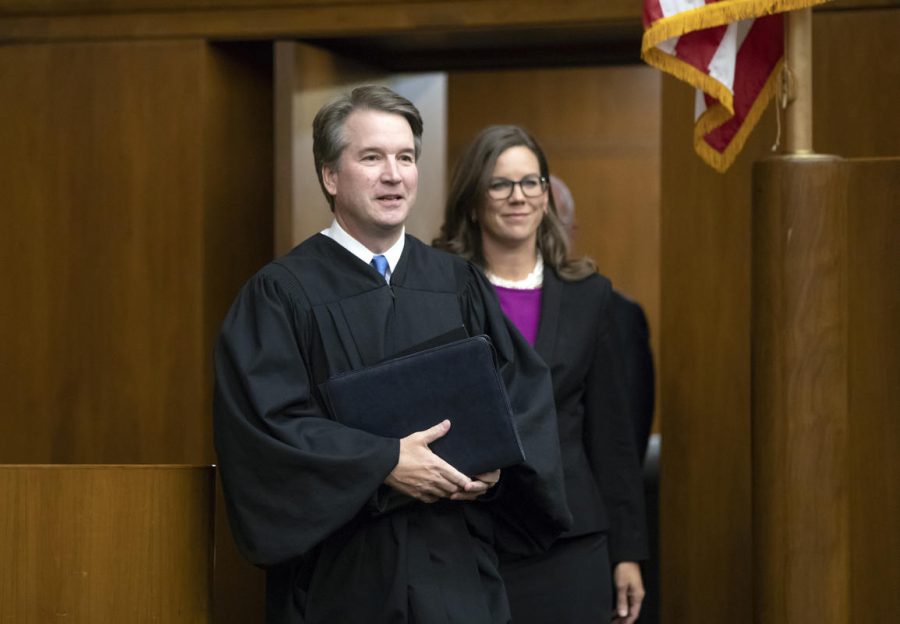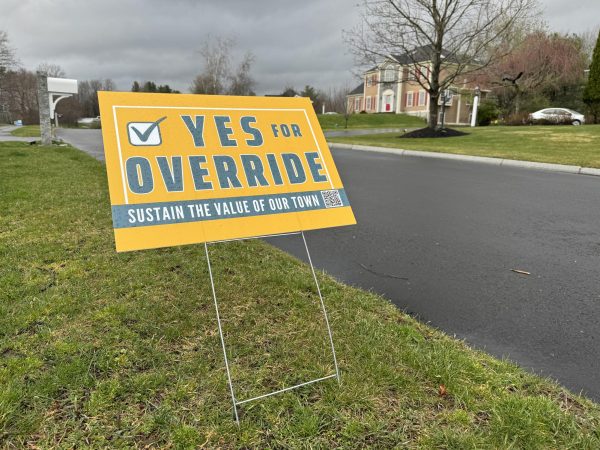Are allegations enough?
President Donald Trump’s Supreme Court nominee, Judge Brett Kavanaugh, officiates at the swearing-in of Judge Britt Grant, right, to take a seat on the U.S. Court of Appeals for the Eleventh Circuit, Tuesday, Aug. 7, 2018, at the U.S. District Courthouse in Washington. (AP Photo/J. Scott Applewhite)
October 16, 2018
An allegation is not a laughing matter which is to be thrown aside as though it’s some sort of tool to wield against someone. Nor is it something which is used to denigrate someone. An allegation is a claim that someone has tarnished themselves through wrongdoing. Allegations are not by themselves substantiated, or true, but rather a base for more investigation.
If we take allegations at face value and decided to act along those lines, then we can get rid of the whole system of due process all-together. Why is this? Because the second you start saying that an allegation should be enough to condemn someone for something, we lose the ability to carry out justice.
Imagine being accused of murder. There isn’t a shred of evidence to support this claim other than the person who is claiming you murdered someone. What would you do? Naturally, you’d start building a defense, but lets say there isn’t anything that you can bring up to disprove your claim, your alibi can’t be corroborated, and the person who is accusing you is keeping their story straight as an arrow. But on the bright side, there isn’t any evidence that can place you at the scene of the crime, or give any motivation for why you’d want to kill this random person. Along with all of that, people who know you are coming forward and saying that you could never do something like this.
It sounds like an open and shut case for you. There isn’t any evidence that can be used against you and you think you’re home free. But then a conviction comes through, your due process has been stripped, and the tables have turned. The judge has decided that the accuser doesn’t have to prove their claim, you have to disprove it. As you’ve already said, you can’t get anyone to back up your alibi, and soon as you know it you’re being escorted to a police cruiser on the way to the slammer.
This is what happens when you go from “innocent until proven guilty” to “guilty until proven innocent.” Now let’s say you really did kill this person, but there isn’t any evidence to put you at the scene or give credibility to the accuser. In a court of law, you will be free, because the burden of proof lies on the accuser to prove not the defender to disprove.
As Sir William Blackstone once said “It is better that ten guilty persons escape than that one innocent suffer.” But this sentiment towards those accused of crimes seems to have gone out the window with the nomination and confirmation of Justice Brett Kavanaugh.
Kavanaugh has had multiple allegations brought against him from multiple different women, most notably Christine Blasey Ford. Ford accuses Kavanaugh of attempting to rape her at a party back in the 1980’s when they were both in high school. Though there have been questions about the inconsistencies and gaps in her story, politicians and voters alike have come out in total support of her. This led to a major political battle over the supreme court, with protesters banging on doors and screaming slogans. “believe survivors” and “believe women” have been staples of the movements. But this raises questions, how do we know they are survivors? Why should we just believe all women? The answer is simple, we shouldn’t, not without evidence. Should allegations be treated seriously and investigated accordingly? Yes, but should we act off of mere allegations? Not unless you are okay with the possible condemnation of an innocent person.
Could the allegations against Kavanaugh be true? Absolutely. Now, even if they were, should an allegation against him with no substantial evidence be enough to effectively ruin his life and any hopes of getting a seat on the Supreme Court? Absolutely not. We live in a country where you are innocent until proven guilty. The burden is on the prosecution to prove the crime, not the defense to disprove it. If this is precedent that is established — that a person’s life can be ruined through claims without evidence or corroboration — then what is to stop any woman from accusing any man of wrongdoing and ruining his life?
The moral of this political escapade is that people are capable of doing the most dirty things, regardless of party, affiliation, or reasoning. People are innocent until proven guilty, and to say otherwise does a major disservice to the justice system which has been upholding due process for hundreds of years.
If you want to get a full rundown of the Kavanaugh situation (factual with individual interpretation) I would recommend listening to this speech given by Senator Susan Collins before the senate.


















